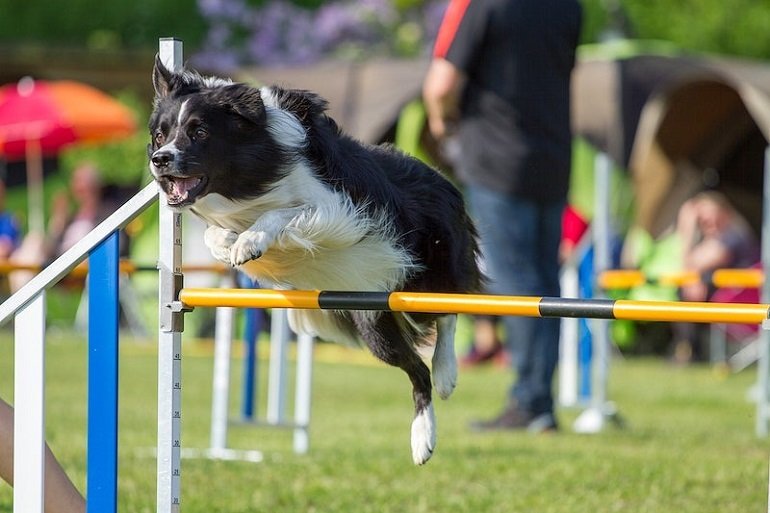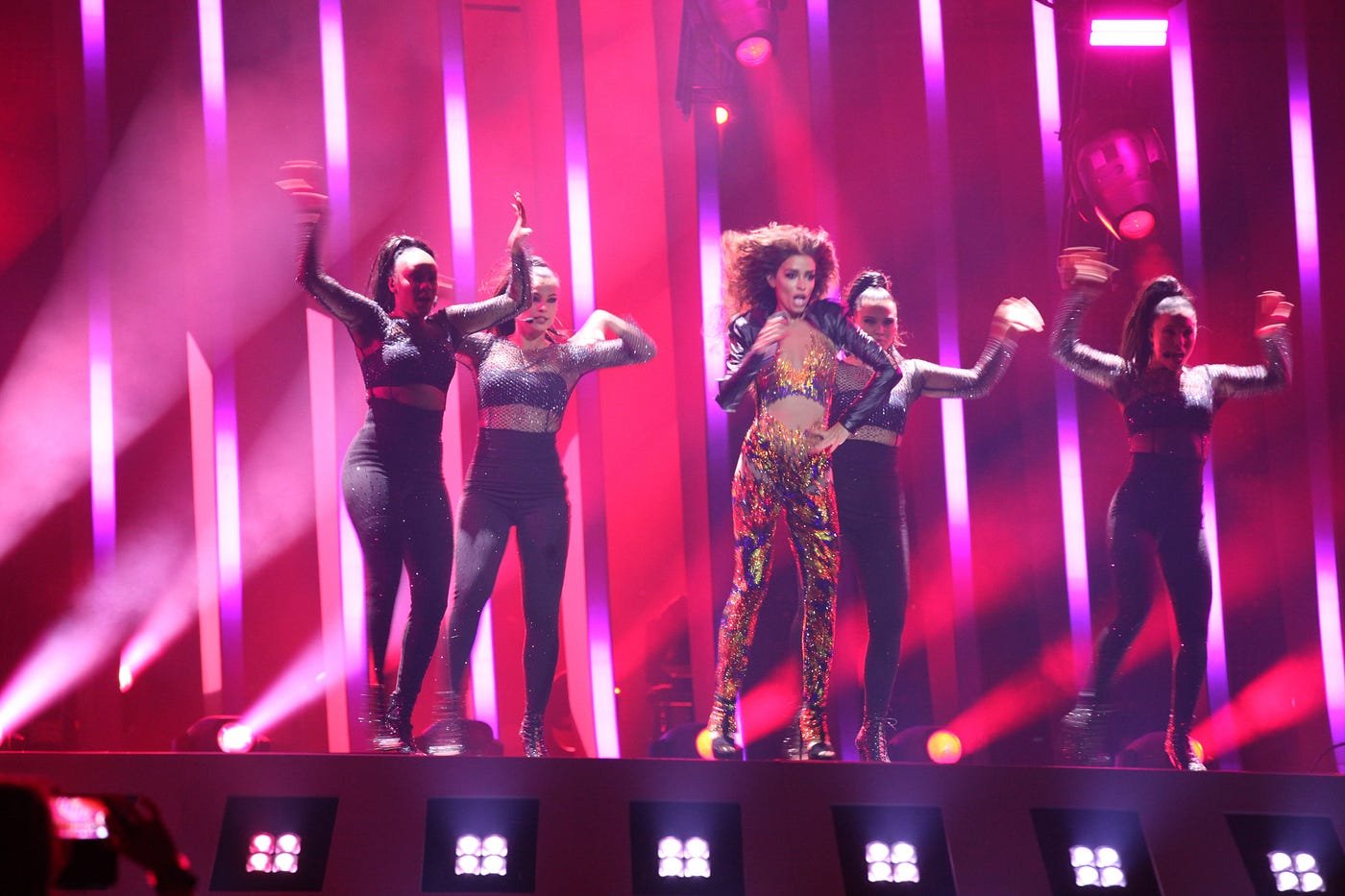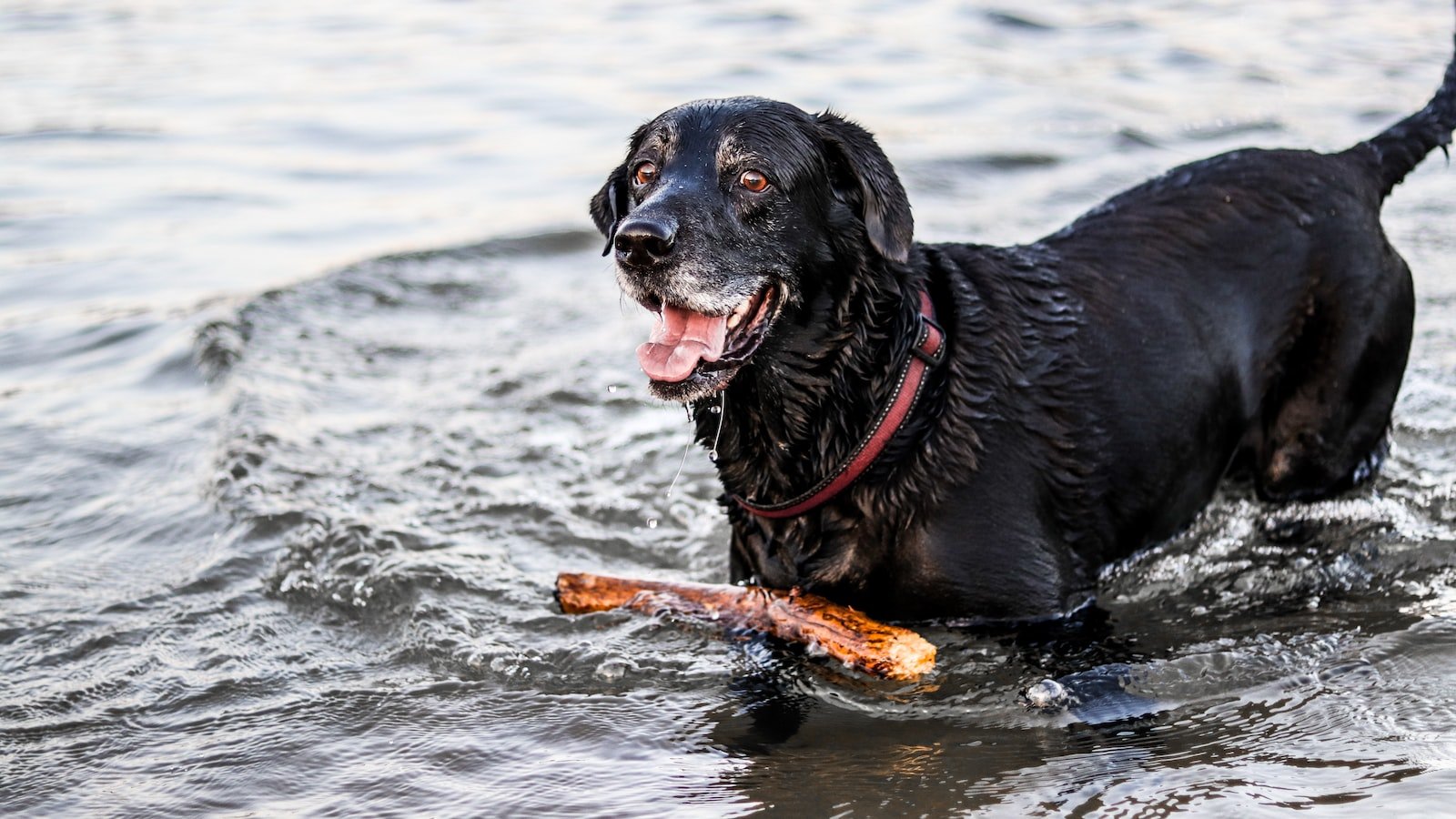From the graceful spins to the synchronized twirls, there is an artistry that emerges when dogs and their owners take center stage in the enchanting world of canine freestyle. Known as the ultimate dance collaboration between humans and canines, this extraordinary form of dog training combines precise choreography with a display of unparalleled bond and finesse. As these dynamic duos pirouette, leap, and weave together, the audience can’t help but be captivated by the sheer poetry in motion that unfolds before their very eyes. In this article, we delve into the realm of dog training for canine freestyle, exploring the mesmerizing choreographed moves that make this harmonious dance between dogs and their humans truly extraordinary.
Table of Contents
- The Basics of Dog Training for Canine Freestyle: Building a Strong Foundation
- Mastering Choreographed Moves: Techniques for Precision and Elegance
- Creating Captivating Routines: Incorporating Music and Theme into Your Performance
- Fine-tuning Your Canine Freestyle Skills: Perfecting Transitions and Timing
- Unleashing Your Creativity: Adding Personal Touches to Elevate Your Performance
- Q&A
- In Conclusion

The Basics of Dog Training for Canine Freestyle: Building a Strong Foundation
Training dogs in canine freestyle requires a solid foundation to ensure success in this unique and creative dog sport. Whether you’re a beginner or an experienced trainer, understanding the basics is essential for building a strong partnership with your canine companion. Here are some key elements to focus on:
1. Positive Reinforcement:
Using positive reinforcement techniques, such as treats, praise, and play, is crucial in dog training. Reinforcing desired behaviors allows your dog to associate those actions with positive outcomes, making them more likely to repeat them. Consistency and patience are key when rewarding your dog, helping them understand what behaviors are rewarded and shaping their understanding of the freestyle routines.
2. Basic Obedience Skills:
Before diving into the world of canine freestyle, it’s important to ensure your furry friend has a solid grasp of basic obedience commands. Focus on teaching them skills like sit, stay, heel, and come, as these will serve as the building blocks for more complex movements and sequences in freestyle routines.
3. Bonding and Communication:
A strong bond and clear communication between you and your dog are essential for successful canine freestyle training. Spending quality time together, engaging in interactive play, and understanding your dog’s body language will help strengthen your partnership. Developing trust and a shared language of cues and signals will make it easier to guide your dog through choreographed routines and expressive movements.
Remember, building a strong foundation in dog training for canine freestyle takes time and dedication. Take it step by step, have fun, and watch as you and your canine partner become a harmonizing team on the dance floor!

Mastering Choreographed Moves: Techniques for Precision and Elegance
When it comes to mastering choreographed moves, precision and elegance are two essential elements that can truly elevate a performance to the next level. Whether you’re a dancer, an actor, or even a competitive ice skater, there’s no denying the power of perfectly executed movements that exude grace and fluidity.
To achieve this level of mastery, it’s crucial to focus on a combination of technique, practice, and attention to detail. Here are some valuable techniques that can help you cultivate precision and elegance in your choreographed routines:
- Posture and Alignment: Maintaining proper posture and alignment forms the foundation for executing moves with finesse. Develop an awareness of your body’s alignment and work on strengthening your core muscles to create a strong and graceful presence.
- Fluid Transitions: Smooth transitions between different moves not only enhance the overall flow of your routine but also contribute to a sense of effortlessness. Practice linking your movements seamlessly, paying attention to timing and spatial awareness.
- Expressive Movement: Precision and elegance shine when movements are performed with intention and emotion. Embrace the character or narrative of the piece and let it guide your every step, allowing your movements to tell a story.
- Attention to Details: Every subtle gesture and nuance matters. Pay close attention to the finer details such as hand placement, footwork, and facial expressions to ensure your performance is polished and refined.
- Refining Technique: Continuously refine your technique by seeking constructive feedback from instructors or coaches. This will enable you to identify areas for improvement and work towards mastering your choreographed moves.
Remember, mastering choreographed moves is a journey that requires patience and dedication. By incorporating these techniques into your training repertoire, you’ll be well on your way to achieving precision and elegance, captivating audiences with your impeccable artistry.

Creating Captivating Routines: Incorporating Music and Theme into Your Performance
Performing routines can be a thrilling and captivating experience for both the performer and the audience. One way to make your routine truly stand out is by incorporating music and themes into your performance. Music has a way of connecting with emotions and setting the tone for your routine, while themes add an extra layer of creativity and depth. Here are some tips on how to create captivating routines by seamlessly integrating music and themes:
1. Choose the right music: The first step is to find the perfect soundtrack that complements the overall theme and mood of your routine. Consider the rhythm, tempo, and lyrics of the songs. Experiment with different genres to find the one that resonates with your performance.
2. Set the stage: Your routine’s theme can be portrayed through costumes, props, and stage design. Use colors and textures that align with the theme to create a visually cohesive experience. Bold and vibrant colors can evoke excitement and energy, while softer tones can convey a sense of elegance and grace.
3. Tell a story: Use your routine to tell a compelling story that connects with the audience on an emotional level. Incorporate movements, gestures, and facial expressions that bring the theme to life. Think of your routine as a narrative, with a clear beginning, middle, and end, ensuring that each element serves a purpose in conveying your chosen theme.
Remember, the key to creating captivating routines lies in the seamless integration of music and theme. Let your creativity soar and explore different possibilities to captivate your audience and leave a lasting impression.
Fine-tuning Your Canine Freestyle Skills: Perfecting Transitions and Timing
In the world of canine freestyle, timing is everything. When seamlessly transitioning from one move to another, it elevates the overall performance and captures the audience’s attention. Perfecting transitions requires practice and a keen sense of rhythm. It’s a dance between you and your four-legged partner, showcasing the incredible bond and synchronization between you.
One key tip for mastering transitions is to ensure clear cues. Your dog should understand the difference between each command, whether it’s a spin, a jump, or a twirl. Consistency with your verbal and hand cues will help your canine companion anticipate the next move and perform it with finesse.
- Use visual signals: Incorporate your body language and hand gestures to communicate with your dog during the transitions. This visual connection not only enhances your partnership but also assists your dog in comprehending your commands.
- Practice timing and fluidity: Meticulously time your cues and movements, ensuring they flow smoothly from one to the next. A well-executed transition exhibits precision and grace, captivating the crowd and taking your performance to the next level.
- Build a strong foundation: Focus on individual moves and commands before incorporating them into transitions. By strengthening each element separately, you’ll be equipped with the building blocks necessary to create stunning sequences of movements.
Remember, freestyle is all about creativity and self-expression. As you fine-tune your skills, allow room for experimentation and personal flair. Trust in the bond between you and your canine partner, and together, you can create a captivating freestyle routine that leaves everyone in awe.
Unleashing Your Creativity: Adding Personal Touches to Elevate Your Performance
When it comes to performance, pushing boundaries and going beyond the ordinary is what sets you apart from the crowd. One way to achieve this is by infusing your own personal touches into your work, allowing your creativity to soar. By doing so, not only will you elevate your performance, but you will also leave a lasting impression on those who witness your craft.
Here are some ways to unleash your creativity and add those unique personal touches:
- Think outside the box: Challenge conventional methods and explore new possibilities. Embrace your natural curiosity and let it guide you towards unconventional ideas that can bring a fresh perspective to your performance.
- Embrace spontaneity: Allow yourself to be open to unexpected inspirations and ideas that may arise in the moment. Embracing spontaneity can lead to surprising and unforgettable moments that truly captivate your audience.
- Inject your personality: Be authentic and let your personality shine through in your performance. Share your unique experiences, emotions, and beliefs that will connect with your audience on a deeper level.
- Experiment with different mediums: Don’t limit yourself to one medium. Explore various forms of expression such as music, art, or dance, to find new ways to communicate your ideas. This can add richness and depth to your performance.
- Collaborate: Engage with like-minded individuals and collaborate with others who share your passion. Sharing ideas and perspectives can spark new insights, enhance your creativity, and take your performance to new heights.
Remember, adding personal touches to your performance is an ongoing journey. Discover what makes you unique, embrace it, and let your creativity flow. By doing so, you will not only elevate your performance but also inspire others to express their own creativity.
Q&A
Canine Freestyle refers to choreographed moves performed by dogs. What is it exactly?
Canine Freestyle is a unique and creative dog sport where dogs and their handlers perform a routine set to music. It involves a combination of obedience, tricks, and dance-like movements, highlighting the bond between the dog and the handler.
Do you need any prior training or experience to start Canine Freestyle?
Prior training in basic obedience is beneficial, but no specific experience is required to start Canine Freestyle. With patience, practice, and a positive approach, any dog and handler can begin learning the choreographed moves.
What benefits can Canine Freestyle training offer to dogs?
Training in Canine Freestyle can provide mental stimulation, build confidence, improve coordination, and deepen the bond between the dog and the handler. It also offers an opportunity for dogs to showcase their unique talents and abilities.
Are there any specific breeds that are better suited for Canine Freestyle?
Canine Freestyle is a versatile sport that can be enjoyed by any breed. While some breeds may naturally excel in certain moves or tricks, the sport is open to all dogs that are physically capable of performing the routines.
How can you get started with Canine Freestyle training?
To start training Canine Freestyle, it’s helpful to have a solid foundation in basic obedience commands. Building a strong relationship of trust, positive reinforcement, and effective communication between the dog and the handler is crucial. Enlisting the help of a professional dog trainer or joining a Canine Freestyle class can also be beneficial.
Is it important to choose the right music for Canine Freestyle routines?
Choosing the right music for Canine Freestyle routines is essential, as it sets the tone and mood for the performance. The music should match the dog’s personality and movements, while also engaging the audience. Working with a trainer or choreographer can help in selecting the perfect music for the routine.
Are there competitions or events dedicated to Canine Freestyle?
Yes, there are various competitions and events dedicated to Canine Freestyle. These events give dog/handler teams the opportunity to showcase their skills, creativity, and teamwork in front of judges and audiences. Competitions are often categorized by skill level to ensure fair competition.
Can dogs of all ages participate in Canine Freestyle training?
Yes, dogs of all ages can participate in Canine Freestyle training. However, it’s important to consider the physical capabilities and limitations of the individual dog. Puppies and older dogs may require modified movements and routines to prevent any strain or injury.
Is it possible to train multiple dogs to perform Canine Freestyle routines together?
Yes, it is possible to train multiple dogs to perform Canine Freestyle routines together. It requires careful choreography and handling techniques to ensure that each dog gets equal attention and can execute their moves safely and accurately.
What is the most rewarding aspect of Canine Freestyle for dog owners?
For dog owners, the most rewarding aspect of Canine Freestyle is witnessing the progress of their dog’s training and the sense of accomplishment when performing a well-executed routine together. It strengthens the bond with their furry companion and provides a platform to celebrate their shared achievements.
In Conclusion
As we gracefully conclude this exploration into the world of canine freestyle, it is clear that our four-legged companions possess a natural talent for rhythmic expression. From wagging tails to mesmerizing spins, it is remarkable how the art of choreography intertwines seamlessly with our beloved dogs’ inherent playfulness and agility.
Embarking on the journey of practicing and perfecting choreographed moves with your canine partner not only deepens your bond but also opens up a world of endless possibilities for creativity and expression. Remember, it is through patience, dedication, and a profound understanding of your dog’s unique abilities that you can unlock their true potential as a dance partner.
Whether you aim to dazzle audiences with elaborate routines or simply want to experience the joy of synchronizing steps with your furry companion, canine freestyle offers a captivating and rewarding way to enhance your dog’s training and enrichment. With each twirl, twist, and hop, you’ll uncover a newfound harmony that transcends the boundaries of ordinary obedience.
So, let your imagination run wild, embracing the playful spirit that lies within both you and your dog. Dance with delight as you witness the transformation of simple commands into enchanting movements, transported into a world where your partnership flourishes under the spotlight.
As you delve deeper into the realm of canine freestyle, remember that the true essence of this art form is not solely about flawless execution, but rather the joy and connection you cultivate with your furry dancer. Cherish each moment of shared enthusiasm, and never forget that it is the bond you nurture with your furry partner that truly makes your performance extraordinary.
Now, it’s time for you and your loyal companion to take center stage and create a dance routine that will captivate hearts and inspire others. So, let your paws gracefully guide your steps, as you embark on this extraordinary journey of canine freestyle, where the language of movement knows no bounds and the connection between human and dog becomes a beautiful dance of love and trust. Keep dancing, keep training, and let your tails wag to the rhythm of pure creativity.
As an affiliate, my content may feature links to products I personally use and recommend. By taking action, like subscribing or making a purchase, you’ll be supporting my work and fueling my taco cravings at the same time. Win-win, right?
Want to read more? Check out our Affiliate Disclosure page.